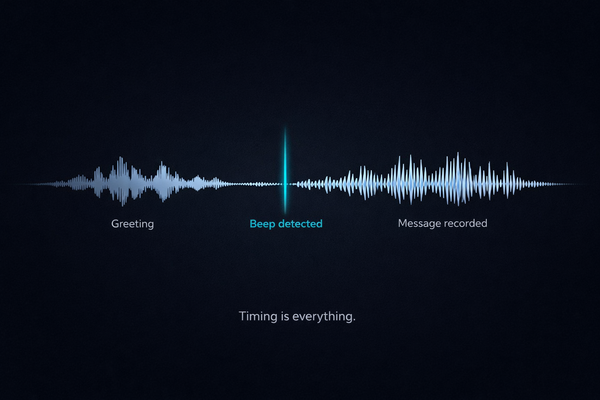[Gamification] The Psychology Behind Engagement: Yu-kai Chou on AI and the Future of Gamification
![[Gamification] The Psychology Behind Engagement: Yu-kai Chou on AI and the Future of Gamification](/content/images/size/w1200/2025/07/Billion-Dollar-Results.png)
From badges and points to billion-dollar transformations, gamification is reshaping how businesses think about human motivation. But as AI enters the picture, the rules of engagement are changing once again.
In this episode of Anyreach Roundtable, Richard Lin speaks with Yu-kai Chou, founder of the Octalysis Group and Framework, about the evolution of gamification and its intersection with artificial intelligence. They explore how true behavioral design goes beyond superficial game mechanics, the current limitations of AI implementation, and the future where personalized motivation could transform every digital interaction. Yu-kai shares insights from his work with major corporations and his vision for AI-powered engagement that adapts to individual psychological drivers.
Key Takeaways
• Beyond Surface-Level Gamification – True behavioral design focuses on eight core human motivations rather than just slapping points and badges onto boring experiences.
• AI's Current Limitations – Most AI implementations suffer from "artificial stupidity" – smart enough to seem capable but not sophisticated enough to deliver meaningful value.
• Personalized Motivation is the Future – AI's greatest potential lies in creating dynamic, personalized feedback that adapts to individual psychological drivers and preferences.
• Competitive Advantage Timeline – Gamification provides competitive advantage today, will be necessary to stay competitive in 2-3 years, and essential for survival in five years.
• Human Psychology at Scale – Games provide a unique laboratory for studying motivation with millions of voluntary participants, offering insights impossible to gather through traditional research methods.
The Science Behind True Engagement
As an early pioneer in gamification who began his work in 2003, Yu-kai brings a unique perspective to behavioral design that goes far deeper than surface-level game mechanics. His approach challenges the conventional wisdom of simply adding points, badges, and leaderboards to existing systems.
The Octalysis Framework breaks down human motivation into eight core drives that encompass everything from epic meaning and calling to unpredictability and scarcity. Without these fundamental drivers, Yu-kai explains, there's simply zero motivation – people drop out entirely.
Games as Motivation Laboratories
What sets Yu-kai's approach apart is his recognition that games serve as unprecedented laboratories for studying human behavior. Unlike traditional psychology studies with small sample sizes and controlled environments, games provide insights from millions of people who voluntarily change their behavior.
This massive scale of voluntary participation offers insights into human psychology that simply can't be replicated in academic settings, where researchers might study 100 students divided into two groups rather than millions of engaged users.
The Reality Check on AI Implementation
When it comes to current AI applications, Yu-kai doesn't mince words about the gap between promise and reality. He's coined the term "artificial stupidity" to describe AI that's sophisticated enough to seem capable but still falls short of delivering truly intelligent interactions.
This assessment comes from direct experience. When Yu-kai used AI to create a voice narration for his latest book, "10,000 Hours of Play," the technology initially seemed impressive but quickly revealed its limitations over longer interactions, breaking the user experience with robotic inconsistencies.
The Personalization Revolution
Despite current limitations, Yu-kai sees enormous potential in AI's ability to create personalized engagement experiences. The technology's real power lies not in replacing human connection but in providing dynamic, individualized feedback that adapts to each person's psychological drivers.
This level of personalization could transform how people interact with digital experiences, moving from generic responses to deeply contextual feedback that incorporates individual preferences, achievements, and even personal values or beliefs.
Billion-Dollar Impact in Practice
The power of proper behavioral design isn't just theoretical. Yu-kai shares a compelling case study from Brazil's Caixa Econômica Federal, the country's second-largest public bank, where gamification principles were applied across 60,000 employees in nearly 5,000 locations.
The goal was ambitious: increase the bank's recurring profit by 5%. The results were extraordinary: they achieved this target within three months and eventually increased recurring profits by nearly 50%, translating to $1.06 billion in additional revenue and helping the bank rise from second to first place nationally.
The Competitive Advantage Timeline
Looking ahead, Yu-kai presents a stark timeline for businesses: gamification currently provides a competitive advantage, but this window is closing rapidly. He predicts that within 2-3 years, companies will need gamification just to stay competitive, and within five years, it will be essential for survival.
This isn't hyperbole based on industry enthusiasm – it's a prediction rooted in direct feedback from major corporations. Yu-kai describes conversations with heads of innovation at some of the world's largest companies who explicitly state that mid-sized competitors using gamification principles are "eating their lunch."
The Human Element in an AI World
Despite his enthusiasm for technology's potential, Yu-kai maintains that human connection remains central to meaningful engagement. He sees AI as augmenting human capabilities rather than replacing them, particularly in creating more meaningful interactions by handling routine tasks and providing personalized insights.
The key is recognizing that people, especially younger generations, increasingly expect relationships with brands rather than simple transactions. They want meaning, purpose, growth, and community – elements that require both sophisticated technology and genuine human understanding.
Practical AI Integration Today
In his own work, Yu-kai takes a pragmatic approach to AI tools, often running multiple models simultaneously – ChatGPT, Grok, Gemini – to compare outputs and find the best solutions. However, he's also candid about AI implementations that create friction rather than value.
This balanced perspective – embracing AI's potential while remaining critical of poor implementations – reflects the thoughtful approach needed as businesses navigate the integration of artificial intelligence into user experiences.
Conclusion
As AI continues to evolve, Yu-kai envisions a future where technology can provide sophisticated, personalized motivation that adapts to individual psychological profiles in real-time. The combination of deep behavioral understanding with AI's processing capabilities could create engagement experiences that feel genuinely meaningful rather than manipulative.
The businesses that will thrive in this future are those that understand both the science of human motivation and the practical realities of AI implementation – creating experiences that leverage technology to enhance rather than replace genuine human connection.
For Yu-kai Chou, the future belongs to those who can seamlessly blend psychological insight with technological capability, creating digital experiences that don't just capture attention but genuinely fulfill human needs for meaning, growth, and connection.
How to connect with Yu-Kai from Octalysis
Keywords: gamification, behavioral design, AI engagement, human motivation, Octalysis Framework, personalization, employee engagement, customer retention




![[AI Digest] Agents Coordinate Plan Deploy Scale](/content/images/size/w600/2025/07/Daily-AI-Digest.png)